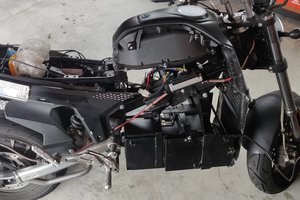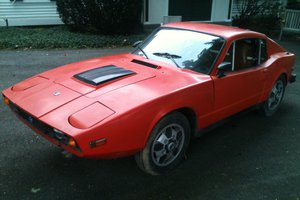The most common configuration turbo kit for cars is a simple compressor that works off of exhaust fumes from the engine. It's a semi practical use of otherwise mostly useless exhaust. This approach does cause some problems since you have to wait for the fumes to propagate out of the engine and into the impeller as well the volatile corrosive nature of the fumes themselves which leads to turbo failure.
The idea is that an electric turbo with a compressor would be much faster and lag free as the turbo can spin up as the RPM increases. Our first prototype will be in a 2004 Nissan 350Z.
The eventual idea is to build a prototype and then develop a kit that can be applied to a variety of cars.
As of time of writing, there has not been a single production car to include a electric turbo though Audi reportedly has one in the works for 2016-ish. I don't know of any other electric turbo kits so this will be one of a kind.
 Matthew Carlson
Matthew Carlson



 Lucas
Lucas

 Richie Ellingham
Richie Ellingham
 Adam Curtis
Adam Curtis
Most of PCM Hammer is C#, and can be constructed with Visual Studio Community Edition. The library targets .Net Standard and the Windows apps target link like intovehicles .Net Framework. With the ones set up, simply open the AppsPcmApps.Sln report and you're geared up to move.